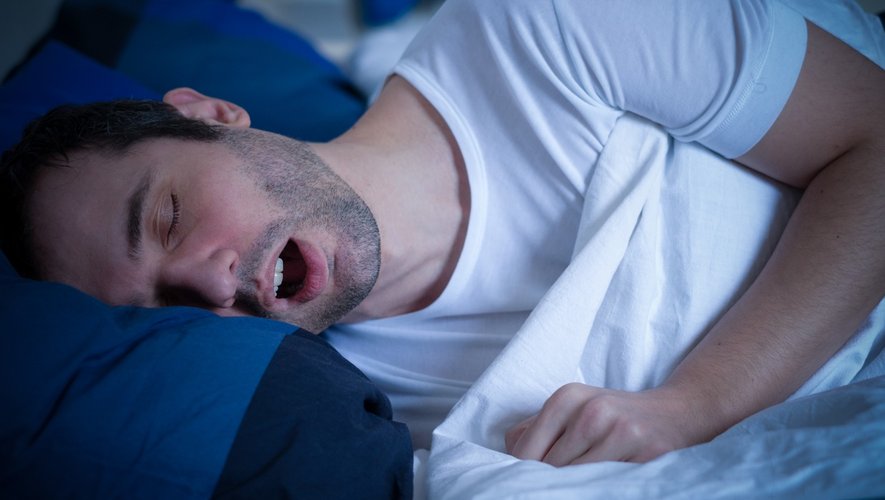Make a loud noise with each breath during sleep. Here is a simple and effective description of snoring. But why is this happening? What can be done to fix it?
“Snoring occurs when the muscles of the back of the throat, soft palate, uvula and tongue relax during deep sleep”, explains the ameli.fr site of the Assurance Maladie. “These organs take up more space and obstruct the airways. When inhaling, the air has a harder time passing and causes the pharynx to vibrate, causing a snoring sound.”
However, not everyone snores. So what are the causes of all this nocturnal uproar? Several factors trigger or promote transient or chronic snoring. The list is quite long:
- gender: men snore more than women;
- age: snoring increases with age;
- weight: overweight and obesity promote daily snoring;
- nasal or nasopharyngeal obstruction caused by an anatomical malformation such as a deviated nasal septum, allergic rhinitis or even a respiratory infection such as nasopharyngitis or angina;
- sleep-related respiratory disorders, including in particular sleep apnea syndrome;
- drinking alcohol;
- taking bedtime medications (sleeping pills, tranquilizers, or antihistamines) that decrease muscle tone;
- tobacco which leads to chronic inflammation of the upper airways hindering the passage of air.
How to fix it?
The attitude to adopt will therefore depend on the cause involved. For many, a change in lifestyle habits can decrease snoring. Smoking cessation, reduced alcohol consumption and weight loss improve the situation. If you are taking antidepressant or anxiolytic treatment, talk to your doctor, he may be able to change it.
If the snoring persists, you will probably be referred to an otolaryngologist (ENT) for an assessment. This sometimes determines the need for surgical treatment in order to correct ENT anomalies that obstruct the passage of air. In children, these are adenoids and tonsils, and in adults, a deviation of the nasal septum.
The case of sleep apnea
Made following a sleep assessment carried out in a specialized department, the diagnosis of obstructive sleep apnea-hypopnea syndrome (OSAS) requires separate management. This involves setting up the use of a continuous positive airway pressure (CPAP) machine to improve breathing and therefore reduce snoring during sleep.

